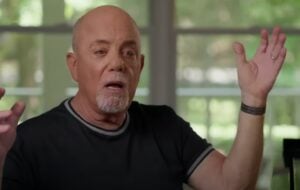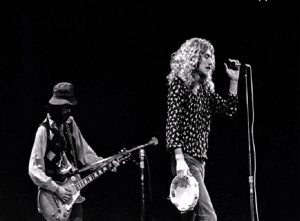Where Roy Orbison’s Wealth Went After His Death

via @ohrwurm1986 / YouTube
Roy Orbison was far more than his haunting falsetto and signature dark sunglasses. With a career that earned him praise from icons like Elvis Presley, Orbison’s musical legacy was built on emotional depth, vulnerability, and timeless songwriting. He earned 23 Top 40 hits and shaped the soundscape of the ’60s and ’70s, resonating with fans across generations.
By the time of his death in 1988 at just 52 years old, Orbison had built not only a cherished musical archive but also a substantial financial estate worth an estimated $20 million. This wealth was boosted by a late-career resurgence that included the use of his song “In Dreams” in the film Blue Velvet, and his brief but notable role in the supergroup The Traveling Wilburys.
While fans mourned the loss of a unique voice, Orbison’s death also raised a pressing question: What would happen to the legacy—and fortune—he left behind? The story of his estate reveals a complex blend of love, tragedy, and resilience.
View this post on Instagram
Guardian of Orbison’s Legacy
Roy Orbison’s second wife, Barbara Wellhoener Jakobs, played a pivotal role in the continuation of his legacy. The two met in 1969 during a tour in the U.K., and their bond quickly solidified into marriage and the birth of two sons, Roy Jr. and Alex. More than just a spouse, Barbara became Orbison’s manager, business partner, and eventually the executor of his legacy.
Following Roy’s sudden death in 1988, Barbara took the reins of his musical empire. Her efforts weren’t just about preservation—they were about expansion. She successfully released Mystery Girl, his final album, just two months after his death, earning him a posthumous Top 5 hit. Later, she curated The Soul of Rock and Roll, a four-disc box set celebrating his career.
Barbara’s stewardship transformed the estate into a robust business. Reports describe her as one of the wealthiest widows in music, a title she earned through tireless legal work to protect Roy’s catalog. From lawsuits against unauthorized users to royalty disputes with Sony, she ensured the value of Roy’s work continued to grow long after his passing.
View this post on Instagram
The Family That Could Have Inherited It All
Roy Orbison’s life was marked by profound personal loss, which ultimately shaped the path of his estate. His first marriage to Claudette Frady was filled with ups and downs. Despite the turbulence, they had three children together—Roy, Anthony, and Wesley. Their reunion in 1967 ended in tragedy when Claudette was killed in a motorcycle accident while riding with Roy.
As Orbison was still reeling from her death, an even deeper heartbreak followed. A house fire in Tennessee the following year took the lives of his two eldest sons, Roy and Anthony, while he was away on tour. Only Wesley survived, having been with his grandparents at the time. The loss left Orbison emotionally devastated, now a single father caring for one surviving child.
Had Claudette and their sons lived, the structure of Orbison’s estate would likely look very different today. His original heirs were tragically removed from the picture by fate, making way for a second family—one that, in time, would become responsible for one of music’s most sacred catalogs.
View this post on Instagram
A Legacy Preserved Through Resilience
The sad turns in Orbison’s personal life ultimately led to the formation of a new family with Barbara, and with it, a different future for his estate. While heartbreak cast a long shadow over his later years, those same years gave rise to an enduring partnership that shaped how the world continues to hear and remember Roy Orbison today.
Barbara’s passion for his music and memory meant that the estate wasn’t just preserved—it was reintroduced to new generations. Her business acumen, paired with emotional investment, helped maintain Roy’s influence in pop culture, ensuring that his songs never faded into obscurity. She carried out this mission until her own passing in 2011.
Today, the Orbison estate is largely managed by their sons, including Roy Jr., who continues to speak publicly about his father’s legacy. Through tragedy and triumph, Roy Orbison’s wealth ended up in the hands of those who not only loved him—but fought fiercely to keep his voice alive.
View this post on Instagram











